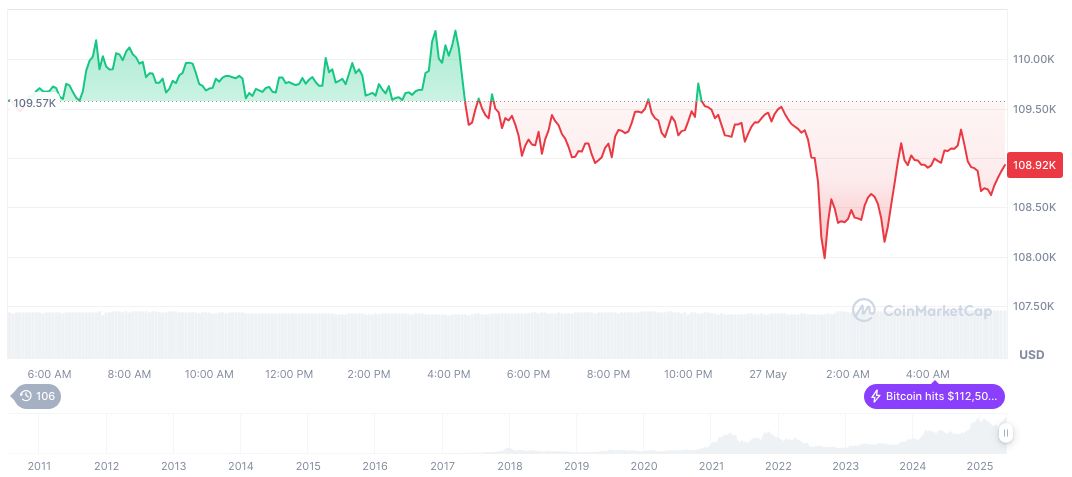- Christopher Waller mentions possible tariff reductions influencing economic expectations.
- Anticipated future trade agreements signal a shift in policy.
- Immediate responses vary from optimism to caution among economic analysts.
In a recent address, Christopher Waller highlighted that tariffs could soon decrease, suggesting future trade agreements. This statement, noted on May 27, 2025, potentially shifts economic projections and international trade relations.
Christopher Waller, a Governor at the Federal Reserve Board, indicated potential reductions in tariffs, emphasizing future trade agreements within days. These reductions could reach 10% or lower, targeting countries with favorable trade conditions. Although not officially confirmed, Waller’s comments have sparked interest.
10% Tariff Reduction Likely: Potential Economic Shifts Ahead
Possible tariff reductions could alleviate some economic pressure, potentially influencing inflation rates and market stability. Analysts remain divided on the impact of these changes, especially concerning U.S. economic growth metrics.
Reactions from market observers have been mixed. Some industry insiders express optimism about lower trade barriers, while others remain cautious until official updates surface. Waller’s remarks are scrutinized for broader implications on trade policies globally.
“There is significant uncertainty about trade policy and its economic consequences, which makes forecasting challenging.” – Christopher Waller, Governor, Federal Reserve Board
Significant Trade Policy Changes Could Influence Bitcoin and Tech Exports
Did you know? Significant shifts in trade policies, like tariff adjustments, can ripple through major economies, affecting global markets.
Bitcoin’s valuation currently stands at $109,555.04, with a market cap nearing $2.18 trillion. It holds 63.04% of the market share, according to CoinMarketCap. Despite a -0.19% change in the past day, the cryptocurrency’s 30-day gain of 16.82% signifies substantial growth. The fully diluted market cap exceeds $2.3 trillion.
Coincu’s analysis indicates that changes in tariff policies could affect multiple sectors, including technological exports. Economic and regulatory frameworks might adapt, influencing both short-term and long-term market dynamics, particularly in sectors relying on global trade agreements.
Source: https://coincu.com/340078-christopher-waller-tariff-reductions-crypto-market-impact/

